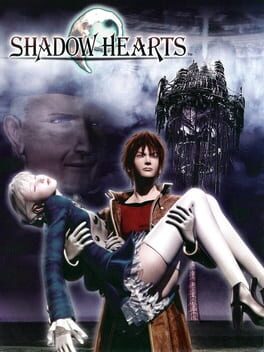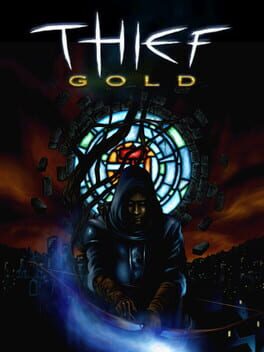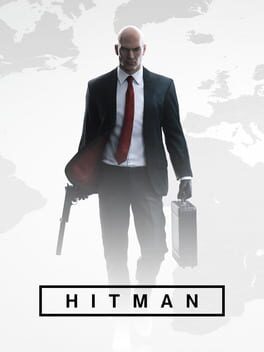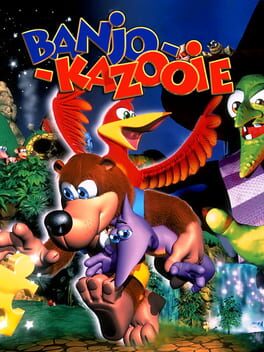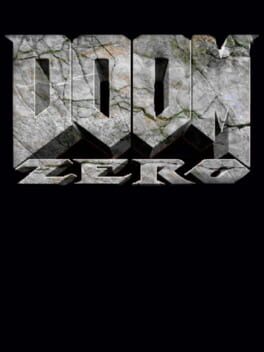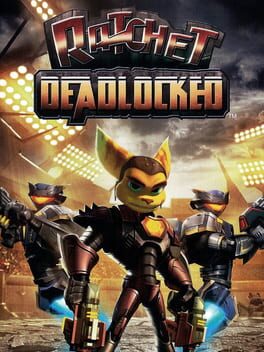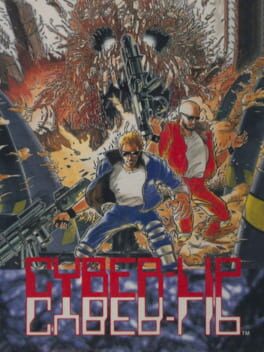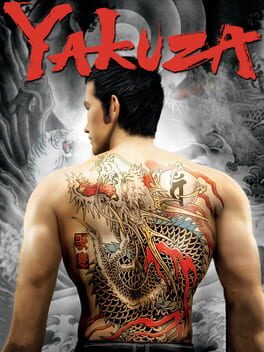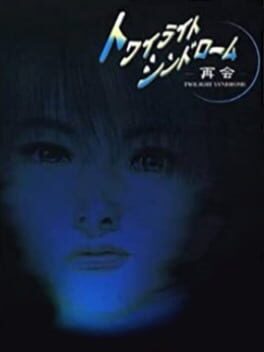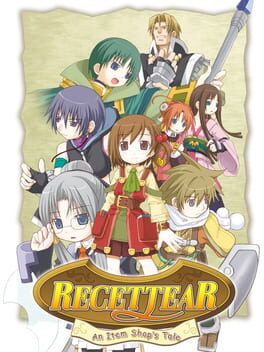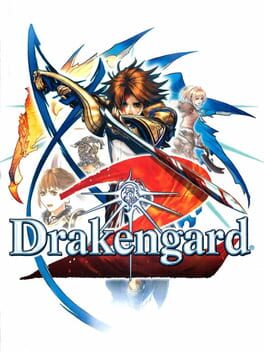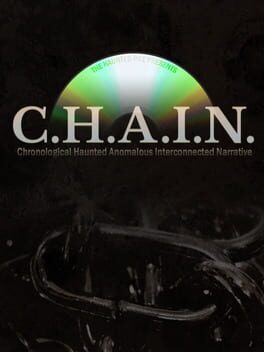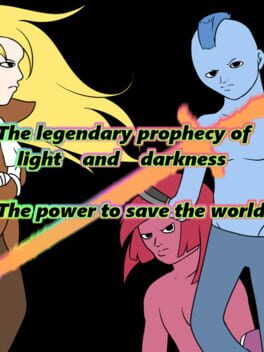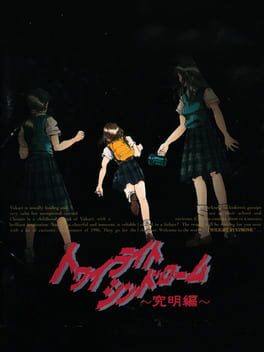Djungelskog
2001
I ended up loving Shadow Hearts by the end but I really think it was a bad move to have so many sexual assault jokes in the first couple hours. I know "it was a different time" but the vast majority of the game isn't like that at all. Between those jokes and the abysmal dubbing I probably would have dropped this one early on if I hadn't played Koudelka first, but I'm very happy I didn't.
1999
Thief is a wonderful game that has aged much better than its contemporaries in the stealth genre, and while it did not create the "immersive sim" per se, I feel that it laid the ground work for what would come later more than its predecessors did. There is certainly some jank present in its movement mechanics and the combat is dire, but the levels are (almost) all very fun to explore and the sound design is still among the best in the medium. Even playing with speakers, you can easily tell the location of an enemy just by the sound of their footsteps as they patrol - close your eyes and you can visualize them walking around. No other game I've played comes close.
The thing that strikes me most about Thief is how experimental it is. Most games would come up with a solid blueprint like Bafford's Manor and then keep repeating that over and over with increasing complexity to create a uniform, but satisfying, experience. Thief is not content to ever do the same thing twice, and constantly throws entirely new level concepts at the player, sometimes even pretending to revisit past glories before pulling the rug out from under them mid-mission. It frequently dips into horror and surrealism, with a couple of levels that seem more in line with the Tomb Raider series, one level that feels like a prototype for the Hitman brand of social stealth gameplay, and another level that features the earliest instance I've encountered of the dreaded tailing mission. There's a lot going on in this game that set the stage for future heavy-hitters, and while not everything Looking Glass tried actually worked, the failures are few and far between - or, should I say, mostly near the end.
There are a couple of missions I wasn't a huge fan of - The Haunted Cathedral and Mage Towers - right smack in the middle of the game, but in the end I still enjoyed them despite some overly confusing level design, the former's ludicrously high loot requirement, and the latter's ending puzzle that I simply couldn't figure out on my own. In the end, I didn't dislike them at all, though they were definitely my least favorite parts of the game for most of my playthrough. (I actually really like the Thieves Guild level and think it's underrated, sorry y'all.) My main issue - and the only reason I don't give Thief a "perfect" score - lies in the second- and third-to-last levels. I hated both of them, especially Escape, for going against everything I love about the immersive sim genre. Escape feels like a slaughter map grafted onto a stealth game; there are so many enemies that sneaking past them while also exploring the level is borderline impossible even with liberal save-scumming, and knocking them out results in them making loud noises that alert everyone within a mile radius. There are also at least 20 giant spiders with erratic patrol patterns in dense, samey tunnels that will ruin your day (doubly so mine, as I have mild arachnophobia) and tiny exploding frogs that will completely push your shit in if you aren't prepared. Granted, I could have avoided a lot of frustration if I was content to just run through the level as most fans seem to, but I like to take my time and explore everywhere in games (and I kind of had to because of the Expert difficulty objective - more on that later). Maybe on a replay it won't be so bad now that I know where to go and what to do? The following level isn't nearly as awful, though its design does feel kind of lazy as it retreads a previous mission but worse, and has almost no exploration for the player to enjoy. The final mission is a little better, it's very linear and doesn't play to the game's strengths at all but it has a few cute tricks up its sleeve at least.
Much like the sound design, one thing Thief does better than just about any other game I've played is difficulty settings. Usually, hard mode ups enemy damage values and health while also handicapping the player in some way (or, in a stealth game, lets them see you from across the entire map and through walls); I find this kind of design irritating and thus play 90% of games on Normal difficulty. In Thief, the Hard and Expert settings add extra objectives and sometimes even entirely new areas into the fold, creating a richer experience. The first time I played this game as a young teen, I did it on Normal and had a great time despite never finishing it; when I went back to it about a month ago, I played on Expert instead at a friend's recommendation and I'm so glad I did. While each mission does add a few more enemies and remove a couple of items, the actual difficulty is really only increased by requiring more ingenuity and exploration on the player's part rather than frustrating them with bullshit enemy AI. These extra objectives usually also give more context to the story, which is really simple in terms of core narrative but is backed by some of the most interesting lore in any game. It's an incredibly rewarding experience.
Overall, Thief is easily one of the most engaging and unique games I've ever played. Levels like Cragscleft Prison, Down in the Bonehoard, The Sword, and Song of the Caverns will stick out in my mind forever as some of the finest experiences gaming has to offer. Despite my issues with its final stretch (November 1998 sure was a great month for innovative first-person PC games that shit the bed near the end, wasn't it?), I would absolutely consider this one of the greatest of all time, and can't wait to dive into its sequels and fan missions soon.
The thing that strikes me most about Thief is how experimental it is. Most games would come up with a solid blueprint like Bafford's Manor and then keep repeating that over and over with increasing complexity to create a uniform, but satisfying, experience. Thief is not content to ever do the same thing twice, and constantly throws entirely new level concepts at the player, sometimes even pretending to revisit past glories before pulling the rug out from under them mid-mission. It frequently dips into horror and surrealism, with a couple of levels that seem more in line with the Tomb Raider series, one level that feels like a prototype for the Hitman brand of social stealth gameplay, and another level that features the earliest instance I've encountered of the dreaded tailing mission. There's a lot going on in this game that set the stage for future heavy-hitters, and while not everything Looking Glass tried actually worked, the failures are few and far between - or, should I say, mostly near the end.
There are a couple of missions I wasn't a huge fan of - The Haunted Cathedral and Mage Towers - right smack in the middle of the game, but in the end I still enjoyed them despite some overly confusing level design, the former's ludicrously high loot requirement, and the latter's ending puzzle that I simply couldn't figure out on my own. In the end, I didn't dislike them at all, though they were definitely my least favorite parts of the game for most of my playthrough. (I actually really like the Thieves Guild level and think it's underrated, sorry y'all.) My main issue - and the only reason I don't give Thief a "perfect" score - lies in the second- and third-to-last levels. I hated both of them, especially Escape, for going against everything I love about the immersive sim genre. Escape feels like a slaughter map grafted onto a stealth game; there are so many enemies that sneaking past them while also exploring the level is borderline impossible even with liberal save-scumming, and knocking them out results in them making loud noises that alert everyone within a mile radius. There are also at least 20 giant spiders with erratic patrol patterns in dense, samey tunnels that will ruin your day (doubly so mine, as I have mild arachnophobia) and tiny exploding frogs that will completely push your shit in if you aren't prepared. Granted, I could have avoided a lot of frustration if I was content to just run through the level as most fans seem to, but I like to take my time and explore everywhere in games (and I kind of had to because of the Expert difficulty objective - more on that later). Maybe on a replay it won't be so bad now that I know where to go and what to do? The following level isn't nearly as awful, though its design does feel kind of lazy as it retreads a previous mission but worse, and has almost no exploration for the player to enjoy. The final mission is a little better, it's very linear and doesn't play to the game's strengths at all but it has a few cute tricks up its sleeve at least.
Much like the sound design, one thing Thief does better than just about any other game I've played is difficulty settings. Usually, hard mode ups enemy damage values and health while also handicapping the player in some way (or, in a stealth game, lets them see you from across the entire map and through walls); I find this kind of design irritating and thus play 90% of games on Normal difficulty. In Thief, the Hard and Expert settings add extra objectives and sometimes even entirely new areas into the fold, creating a richer experience. The first time I played this game as a young teen, I did it on Normal and had a great time despite never finishing it; when I went back to it about a month ago, I played on Expert instead at a friend's recommendation and I'm so glad I did. While each mission does add a few more enemies and remove a couple of items, the actual difficulty is really only increased by requiring more ingenuity and exploration on the player's part rather than frustrating them with bullshit enemy AI. These extra objectives usually also give more context to the story, which is really simple in terms of core narrative but is backed by some of the most interesting lore in any game. It's an incredibly rewarding experience.
Overall, Thief is easily one of the most engaging and unique games I've ever played. Levels like Cragscleft Prison, Down in the Bonehoard, The Sword, and Song of the Caverns will stick out in my mind forever as some of the finest experiences gaming has to offer. Despite my issues with its final stretch (November 1998 sure was a great month for innovative first-person PC games that shit the bed near the end, wasn't it?), I would absolutely consider this one of the greatest of all time, and can't wait to dive into its sequels and fan missions soon.
2016
The Mission Stories are cute and fun to do on replays but this game only really shines if you turn off all the hand-holding waypoints, explore the huge maps corner-to-corner, and figure out how to do things yourself. There's a lot to love here in terms of improvisational gameplay but, much like the last decade of immersive sims, the default HUD settings bury Hitman's strengths under AAA railroading that blunts its genius significantly.
1998
2019
I can see why id made this semi-official. There are a couple of lesser maps but the whole thing oozes quality and certain levels really brought a smile to my face. Doom Zero is a much better fan-made entry in the series than Final Doom and honestly I think I like it more than vanilla Doom 2. The only real issues are the focus on "platforming" and a few obnoxious switch puzzles, which are definitely gonna kill the replay value for me a bit. Still, this is a fantastic megawad/game in the end and absolutely worth any fan's time.
2005
1990
Definitely more interesting as a precursor to Metal Slug than particularly good as a game. It's not completely lacking in fun, but the stiff controls and ever-so-slightly too-large player character make what would normally be a rather easy shooter needlessly frustrating. The ending is great, though.
2005
Every time I think about Yakuza, I see a cinematic angle of Kiryu strutting down the dark, neon-lit streets of Kamurocho in the pouring rain, accompanied by a low-key bassline. It's a striking image that both comforts and inspires me, one that makes up for just about every issue I have with this game's janky combat, insufferable load times, and hilariously ill-advised dub. As an atmospheric piece, Yakuza 1 is truly incredible, and none of the post-PS2 games even come close to its neo-noir feel.
2020
More consistent writing quality and pacing than the first two games, albeit with an overall less interesting story to tell. A lot of the charm was lost in the transition to 3D graphics as well, but it's still an entertaining enough time. The early chapters do have some pretty good sound design and creepy moments, though that aspect sorta fizzles out by the end.
Excellent shop management sim, terrible roguelite dungeon crawler. When I found out I had over 100 floors left to go to finish the post-game, I decided to just watch the rest of the story on YouTube. Still, the main draw of Recettear's gameplay loop is fantastic, and the writing is incredibly charming.
2005
After 3 years of torturing myself on and off, I have finally gotten every ending and weapon in Drakengard 2. I hate this game so much.
Everyone already knows the writing is terrible - a lazy retread of the first game's story with a main character who somehow manages to be less interesting and charismatic than even the worst blank slate silent protagonist. The "twists" will surprise no one even passingly familiar with the existence of Drakengard, and the final villain's plan makes no sense at all. The dialogue consists entirely of exposition and the hero asking other characters to provide him with exposition. Many of the cutscenes aren't even animated, consisting solely of still frames, including a large portion of the final ending.
I've seen several people argue that, while the writing is utter garbage, at least the gameplay is better than the first Drakengard (and, bizarrely, some actually claim it's better than Drakengard 3 or even Nier); yet, while there are definitely numerous mechanical improvements, the overall design is much worse than the original game, which becomes increasingly obvious the deeper you get into playthroughs 2 and 3. To explain further, you have to play this one all the way through three times to see the true ending, and it gets harder each time. The default "Normal" difficulty can already be kind of frustrating, but "Extreme" mode is the video game equivalent of CBT. I hope you're ready to be killed over and over by single hits from full health through blocking while your enemies' i-frames protect them from half your attacks. Keep in mind that this is a musou game, so you're going to be dealing with a large number of these guys coming at you simultaneously. There are also bosses with insta-kill moves and minuscule timing windows in which you can actually damage them without instantly seeing the Game Over screen. Frankly, I don't see how anyone could even hope to reach Ending C without cheats or at least save states. I guess you could spend 100+ hours grinding all four characters to Level 99, but... it's Drakengard 2. Why would you do that to yourself
In all fairness, the game isn't completely terrible. Some of the music is pretty good, Gismor and Urick have cool voices, and, uh, the weapon stories are fun? Yeah, that's all I got.
There's a lot more I want to say, but I've already spent longer thinking about Drakengard 2 than any human ever should. Do not play this game, and if you absolutely have to, most definitely do not pay money for it.
Everyone already knows the writing is terrible - a lazy retread of the first game's story with a main character who somehow manages to be less interesting and charismatic than even the worst blank slate silent protagonist. The "twists" will surprise no one even passingly familiar with the existence of Drakengard, and the final villain's plan makes no sense at all. The dialogue consists entirely of exposition and the hero asking other characters to provide him with exposition. Many of the cutscenes aren't even animated, consisting solely of still frames, including a large portion of the final ending.
I've seen several people argue that, while the writing is utter garbage, at least the gameplay is better than the first Drakengard (and, bizarrely, some actually claim it's better than Drakengard 3 or even Nier); yet, while there are definitely numerous mechanical improvements, the overall design is much worse than the original game, which becomes increasingly obvious the deeper you get into playthroughs 2 and 3. To explain further, you have to play this one all the way through three times to see the true ending, and it gets harder each time. The default "Normal" difficulty can already be kind of frustrating, but "Extreme" mode is the video game equivalent of CBT. I hope you're ready to be killed over and over by single hits from full health through blocking while your enemies' i-frames protect them from half your attacks. Keep in mind that this is a musou game, so you're going to be dealing with a large number of these guys coming at you simultaneously. There are also bosses with insta-kill moves and minuscule timing windows in which you can actually damage them without instantly seeing the Game Over screen. Frankly, I don't see how anyone could even hope to reach Ending C without cheats or at least save states. I guess you could spend 100+ hours grinding all four characters to Level 99, but... it's Drakengard 2. Why would you do that to yourself
In all fairness, the game isn't completely terrible. Some of the music is pretty good, Gismor and Urick have cool voices, and, uh, the weapon stories are fun? Yeah, that's all I got.
There's a lot more I want to say, but I've already spent longer thinking about Drakengard 2 than any human ever should. Do not play this game, and if you absolutely have to, most definitely do not pay money for it.
2020
I really want to love this. The concept is brilliant, the launcher is incredible, and every creator involved clearly has passion for the medium. The first eight games weave an abstract but compelling narrative spanning several different genres, feeling like a playable nightmare operating within its own twisted logic - despite technically being different games by different developers, each one truly feels like a single stage within a much bigger work. Unfortunately, as usually happens in games of telephone, the plot is soon lost, and by part 11 everything I adore about the first half more or less collapses.
There's still some great stuff in what remains: the 12th entry is a standout with unique and terrifying audio/visual design, #13 is just incredibly cool, #18 manages to be both funny and creepy at the same time, and the final two segments do an admirable job attempting to wrap things up. Yet, while not completely shedding the dreamlike surrealism of the first half, the latter portion of this collection starts falling back hard on indie horror tropes, to the point of featuring not one, not two, but three Slender-esque games. By the time it was over, my affection for C.H.A.I.N. had morphed into disappointment, but I still think it's worth playing overall, and I have tons of respect for everyone involved in its creation.
There's still some great stuff in what remains: the 12th entry is a standout with unique and terrifying audio/visual design, #13 is just incredibly cool, #18 manages to be both funny and creepy at the same time, and the final two segments do an admirable job attempting to wrap things up. Yet, while not completely shedding the dreamlike surrealism of the first half, the latter portion of this collection starts falling back hard on indie horror tropes, to the point of featuring not one, not two, but three Slender-esque games. By the time it was over, my affection for C.H.A.I.N. had morphed into disappointment, but I still think it's worth playing overall, and I have tons of respect for everyone involved in its creation.
Surprisingly, I think I liked Investigation slightly less than Search overall. The stories in part 2 are a lot more interesting than the ones in the first game, but the pacing is much slower and almost all the resolutions feel anticlimactic. The bonus chapter, Prank, is by far the scariest part of both episodes, and has me seriously craving a Moonlight Syndrome translation. I hope the remaster Suda51 seemingly alluded to earlier this year is real.
